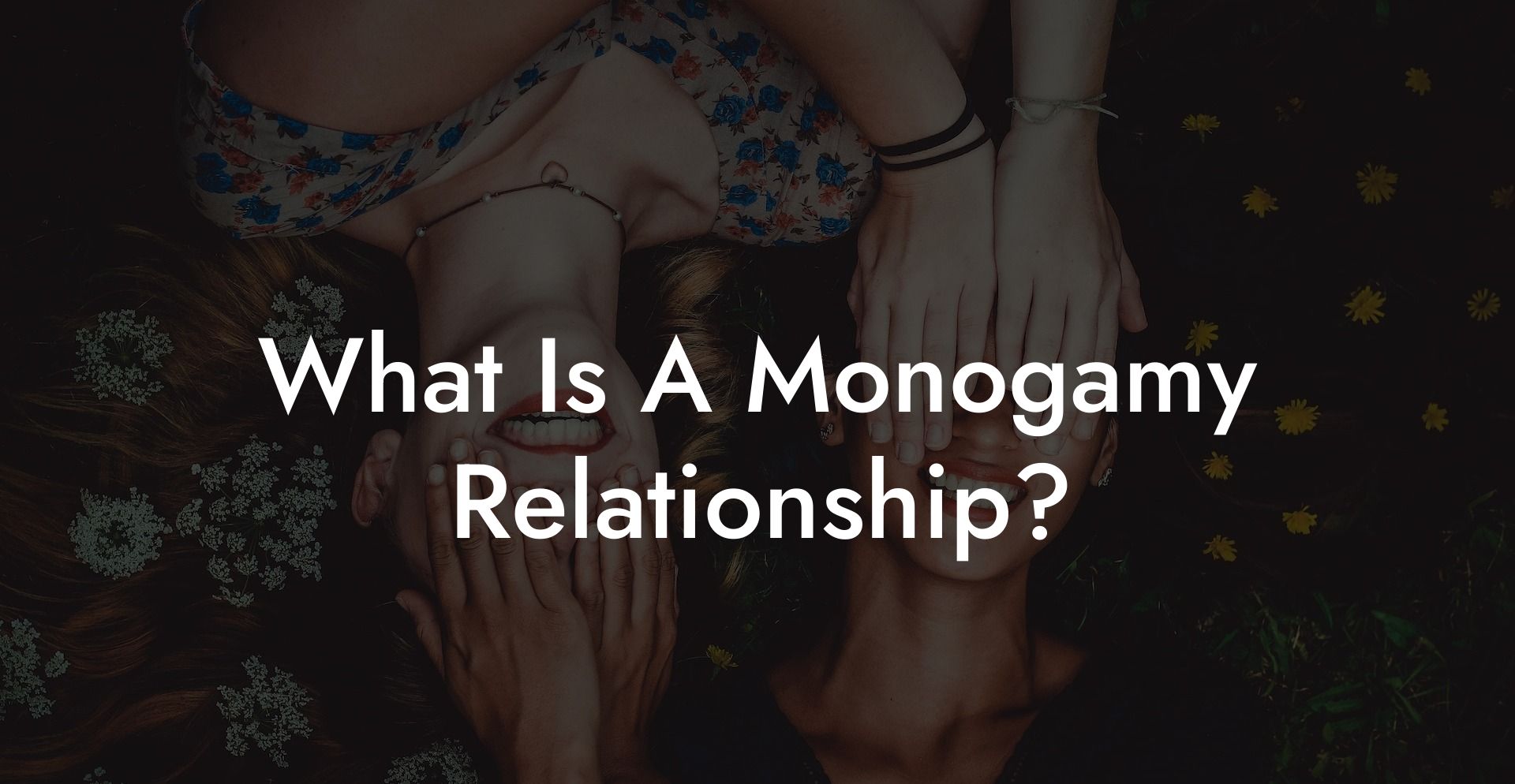Love, trust, and commitment – the holy trinity of a monogamous relationship. But what is a monogamy relationship, and is it the right choice for everyone? As humans, we have been conditioned over the years to believe that monogamy is the default relationship setting, leading to an idealized picture of a soulmate who will make us happy forever. However, as societal norms have evolved, so have our concepts of love, commitment, and relationships. Welcome to the first part of our commitment series, where we delve into the true meaning of monogamy, its benefits, and its challenges. Will you join us on this fascinating exploration? Please share your thoughts with us as you read along, and let's dive deep into the heart of monogamy!
What Is A Monogamy Relationship Table of Contents
Monogamy, in its simplest form, refers to a commitment to a single romantic and sexual partner. These relationships often involve exclusivity, emotional and financial security, love, and trust, which can lead to marriage and family life. Monogamous couples devote their time and energy to nurture and maintain one strong bond, rather than spreading their resources over multiple partnerships.
While monogamy is the most common relationship structure globally, there are variations and complexities within it. Here are some popular forms of monogamous relationships:
Serial Monogamy: Moving from one exclusive relationship to another over time without overlapping.
Social Monogamy: Living with a single partner and maintaining a socially recognized relationship with them.
Sexual Monogamy: Restricting sexual contact only with one’s committed partner.
Benefits of Monogamy
Emotional Security
A monogamous relationship often provides a solid emotional foundation, as both partners prioritize their commitment to one another. This security can lead to deeper connections, trust, and a sense of belonging.
Low Health Risks
Monogamy typically reduces the risk of sexually transmitted infections, as sexual exclusivity offers excellent protection against potential health hazards.
Stability
The structure of a monogamous relationship helps build predictability and stability in life, which could be essential to raising a family, achieving financial goals, and facing challenges together.
Social Acceptance
Monogamous relationships are still considered the norm in most societies, making them inherently more comfortable for many people to navigate.
Challenges of Monogamy
Unfulfilled Desires
Monogamous couples may face unmet sexual desires and fantasies as they rely solely on one partner for their romantic and sexual needs.
Rut or Routine
The comfort of being in a long-term monogamous relationship might lead to complacency. This familiarity could make the relationship feel less thrilling and, at times, monotonous.
Infidelity
The human urge to seek out new experiences can lead some individuals to cheat on their partners in a monogamous setup, potentially causing emotional turmoil and conflict in the relationship.
Monogamy Relationship Example
Let's look at Tom and Sarah, a married couple in their mid-30s. They have been together for over a decade and recognize that monotony is slowly creeping into their once-exciting romance. Instead of succumbing to external desires, they work together on implementing ways to rekindle their love – from exploring new hobbies to planning surprise dates. This proactive approach deepens their emotional connection, reaffirming their monogamous commitment and strengthening their partnership.
Monogamy is an incredible relationship structure for those who appreciate the bonds of trust, commitment, and stability. The beauty of its simplicity lies in two people working together to create a strong, lasting connection. Will this journey lead to a deeper understanding of one's partner or reveal the desire to explore non-monogamous relationships? As we continue our commitment series, expect to uncover more insights into various relationship structures, tips on sustaining passion, and techniques for resolving conflicts.
If you found value in this article, please share it with your friends and explore other lessons in love on The Monogamy Experiment. Together, let's embark on a journey of understanding, self-discovery, and vulnerability, empowering each individual to choose the relationship that best suits their true desires.













